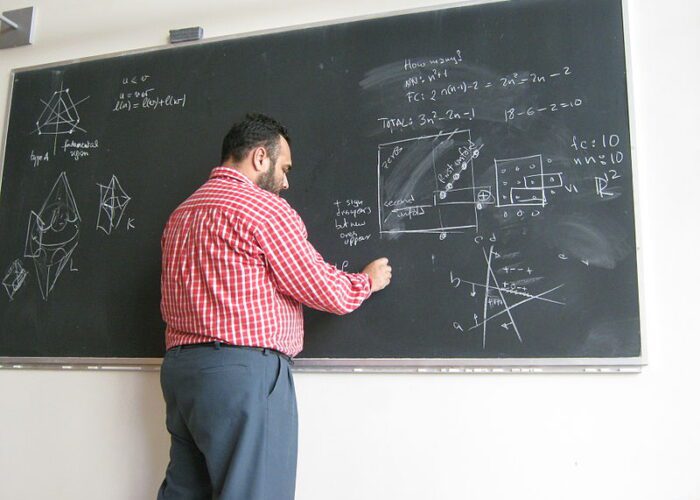
A so-called ‘teacher shortage’ in England has taken centre-stage in domestic debate of late, with reports of educators quitting their jobs as frustrations on both sides continue to fester.
Official government statistics from last year show 10% of qualified teachers left the profession in 2015, and recent reports have suggested that almost half of the school staff currently working in the country plan to leave in the next five years.
Cathy Connolly, who left her Merseyside secondary school teaching role in December, told JMU Journalism: “People who leave teaching do not leave it because of children. They’re leaving it because of the pressures they’re falling under, because of the complete and utter undervaluing of what their job and role is supposed to be, and their lack of freedom of planning in the classroom itself.”
She claimed: “As soon as the Tories got in, we knew there was going to be a crisis in education. That was because of different things that they were imposing. For example, taking away rights from local education authorities and creating this academy system.”
YouTube: News Network
https://youtu.be/zU0ll69PLmQ
The Conservative Party had originally promised a blanket conversion of schools to academies by 2022, although the Government’s Department for Education announced in May of last year that legislation would not be introduced to force through the policy.
- Between 2014 & 2015 the total number of full-time equivalent (FTE) teachers increased by 0.4%.
- The total number of FTE qualified leavers has been on the up, from 37,890 in 2011 to 42,050 in 2014 and 43,070 in 2015.
- Teachers’ leaving rates have been increasing, from 8.9 per cent in 2011 to 9.7 per cent in 2014 and 10.0 per cent in 2015.
- 82% of respondents to a recent Guardian survey said their workload was “unmanageable.”
In 2016, the Government estimated that the cost of transferring all remaining schools to academies will amount to just over £120 million by conversion, but over £315 million by sponsorship.
NASUWT’s National Executive member, Damien McNulty, told JMU Journalism: “The structural changes don’t make any difference, but what they do is suck in a huge amount of additional money, which is wasted in re-branding and changing letter heads.
“The teachers are so ground down by the system that they have to operate in. They’re recording so much data in spreadsheets that other people can be looking at, being over-monitored all the time.
“Teachers get so focused on not being punished for not complying to these bureaucratic systems, that they almost can’t focus on their core job.”
Some teachers working in England are said to find themselves working as many as 60 hours a week, which is 12 hours higher than the limit set by the European working time directive.
Yet, despite questions being raised over the freedom, workload and working conditions in schools at the moment, and an increasing amount of teachers departing the system, the Government’s Department for Education has a very different view.
YouTube: Sky News
A Department for Education spokesman told JMU Journalism: “We wouldn’t buy that there is necessarily a teacher shortage, as there are more teachers in schools than ever before.
“We don’t dictate how schools should be run. We don’t dictate how teachers should mark work. We don’t dictate what hours teachers should work.
“These are all things that are done by individual schools themselves, and we want to give them the means by which to prevent unnecessary work – and we’re working to do that.”
The Government’s Department for Education has published a document on ‘Eliminating unnecessary workload around planning and teaching resources,’ which is available to read online.

